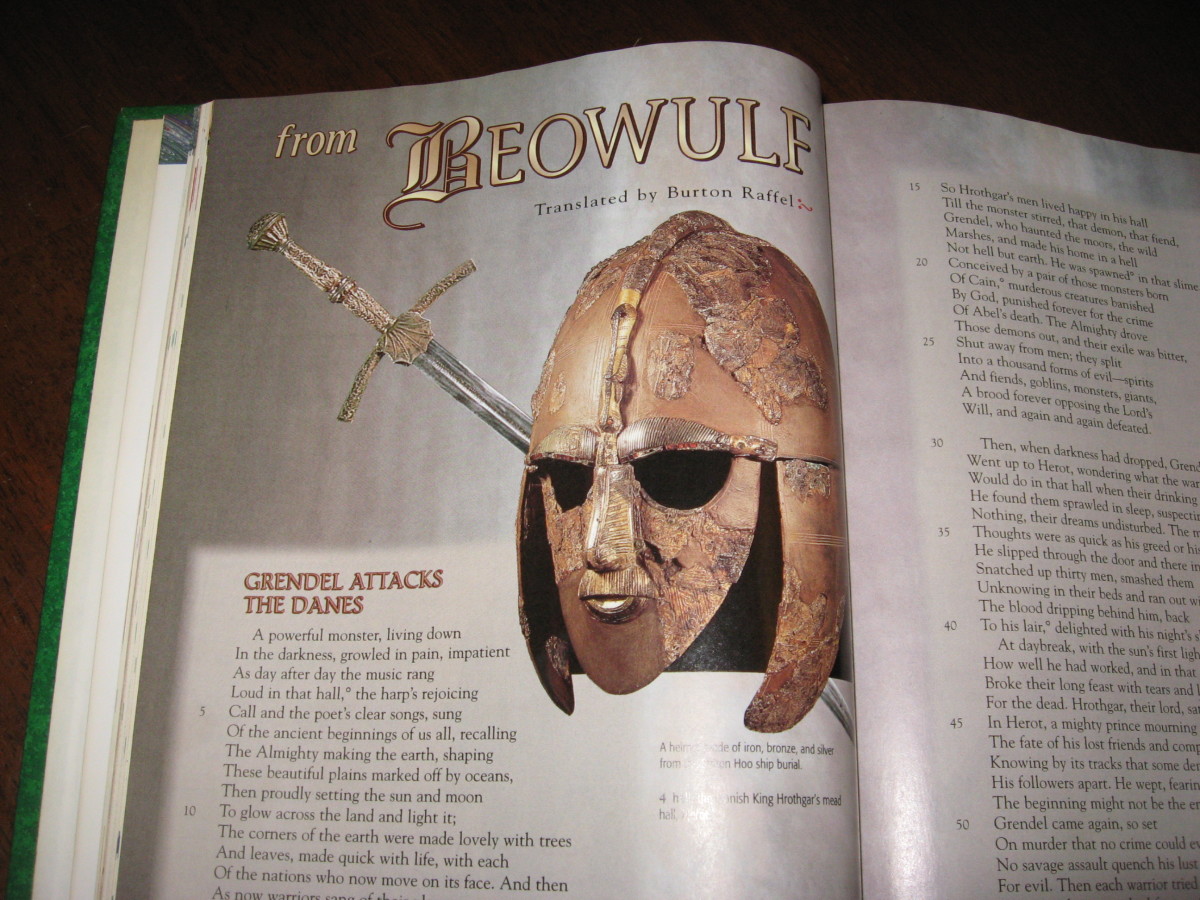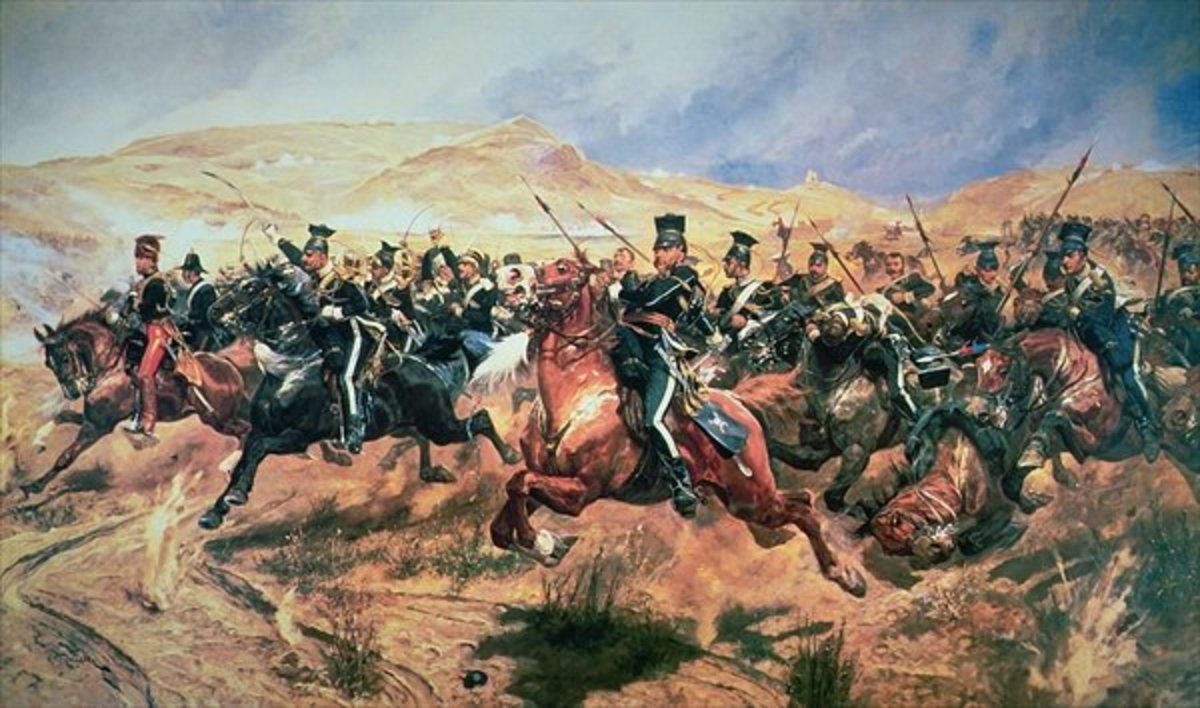Seamus Heaney's Beowulf


Heaney's Beowulf
My first reading of Beowulf came at the age of seventeen; I was mesmerized. Dragons, ogres, warriors, witches, and heroic deeds. Literature at its finest~ historic literature to boot. Fantasy had me in its grasp, and there was no going back. For as much as I enjoy non-fiction and disregarding my innate love of what most people consider classic literature, fantasy still beckons.
For years, Beowulf remained one of my favorite reads, and after entering the educational field it became the one piece of literature I'd always wanted to use with my students. Unfortunately, I work with middle schoolers, and Beowulf in any form is not for the faint of heart. Then I was introduced to Seamus Heaney's translation; the window was finally flung open, and the light poured in.
Heaney's edition marches to the beat of its own drum. It's an alliterative translation filled with descriptive language that flows from one line to the next in a rhythmic prose, taking the reader on an enchanting journey to a long forgotten time and place. His approach is fresh, lyrical, and innocent, and yet the incandescent beauty and raw dignity of the original have been left unmarred by their conversion to contemporary language. That's not to say the original shouldn't be relished by contemporary readers, or that it should be bypassed in the classroom, but let's face it........... the average reader isn't apt to tackle the linguistic challenge of Old English (Anglo-Saxon) literature unless it's required. Heaney has single handedly changed that scenario with the publication of this translation; it is a masterpiece.
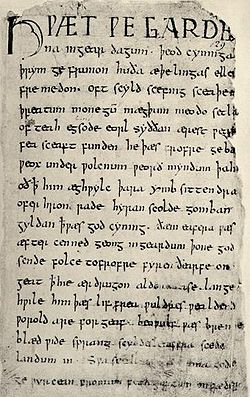
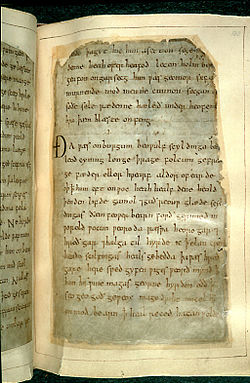
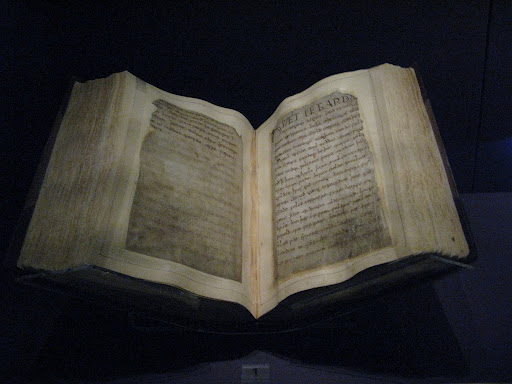
The Ancient Text
Once a jewel of oral tradition, the epic poem of Beowulf was only communicated through the local storyteller or traveling minstrel. Its author is unknown, but the talents of those entrusted to carry such tales were so great, that its beauty transcended time and place through many voices before finally being committed to parchment. Numerous recitations are certain to have provided embellishment over the years, but regardless, our hero remains a man possessed of godlike wisdom, unequaled strength, and a large dose of intelligence; he's a hero's hero, no doubt about it!
Beowulf has survived for centuries for many reasons, but none more important than its artistry. The poem has an enduring presence; it isn't bound by customs, a specific place or even a specific time........... it is in fact, timeless. Our reactions to its message are no different today than reactions sparked hundreds of years ago, and that same cycle will continue far into the future............ my grandchildren, their children, and so on.
Over the years, the Epic of Beowulf has been considered the greatest example of Old English texts, but even more importantly, it holds the honor of being the oldest surviving piece of vernacular European literature. Initially scribed in the Anglo-Saxon language, Beowulf was captured on parchment without title, and most assumed the saga was first recorded in the 7th or 8th Century. Due to recent technological advances, that time period is now a source of deliberation.
With more than three thousand lines, this lyrical tale is given credit for influencing the foundation of English poetry. The use of verse and specific rules for alliteration enabled scops (poets) to remember lines that could only be recorded through the use of memorization.
Its oldest physical manuscript dates back to the 10th or early 11th Century, and was almost destroyed by fire at Ashburnham House (Westminster) in 1731. The manuscript now resides in the British Library, and over the course of the last few centuries has been transcribed, edited, translated, interpreted and reinterpreted to the point where some consider it canonical. Amazingly, it wasn't until the 19th Century that the name of its hero was officially used to name the epic ~ Beowulf ~ what could be more fitting.
The Beowulf Manuscript remained in its damaged condition until the 19th Century, at which time, Sir Frederic Madden (Keeper of Manuscripts/ British Museum) made its restoration a priority. The museum bookbinder would begin the arduous task by meticulously tracing the outline of each burnt leaf on vellum before trimming, pasting, and gluing them to a paper frame. The pages were then rebound and recovered; the text was preserved. Unfortunately, the preservation process has served to conceal hundreds of letters......... today, these letters may only be viewed when illuminated by a bright light from behind. I guess I won't be seeing them anytime soon.
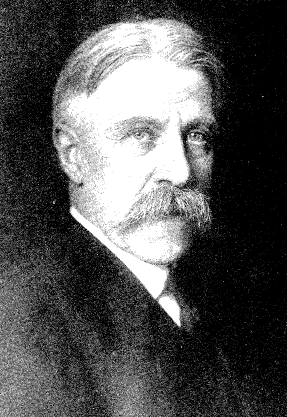
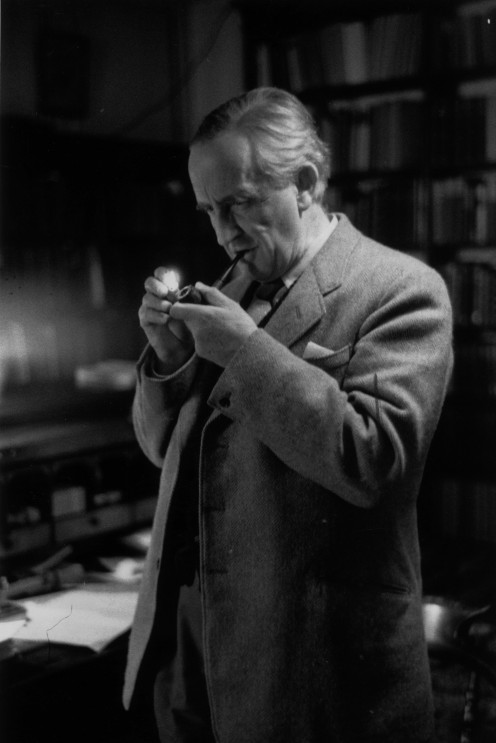

Translations and Study
Beowulf's first translation appeared in 1815; it was written in Latin. By 1892, John Earle, an English Anglo-Saxon scholar and professor of Anglo-Saxon at Oriel College in Oxford, added his own translation of prose when The Deeds of Beowulf was published. Shortly thereafter, a somewhat different translation of verse was written by American, Francis Gummere, professor of English at Haverford College.
Gummere, known for his academic brilliance, had attended Haverford himself.......... beginning his collegiate studies at the ripe old age of fourteen. By seventeen, he was a college graduate, and after two years of working, he found himself attending Harvard where he would add yet another degree to his repertoire. In 1881, Gummere would receive his doctorate from the University of Freiburg in Germany; his dissertation......... The Anglo-Saxon Metaphor, a subject that would inspire his 1909 publication of the Oldest English Epic.
As a result of these men's work and dedication, Beowulf had found a voice in the modern world. For years, Beowulf had been of textual and philological interest to scholars around the globe. It was a time capsule, an unadulterated resource of the legends, stories, and folklore of days long gone.
Scholars perused its pages seeking hidden clues........ visions of the Nordic people it represented. Dates, times, and places became the focus of those who studied its words; its linguistic and scribal details pushed aside by an overwhelming desire to establish a factual history of the Nordic (Swedes, Geats, and Danes) peoples it alluded to. The world-view was more interesting than the story; the understanding of a people more important than the code of honor the people represented.
So what was responsible for the change of focus? How did the study of this pagan warrior's heroic deeds become a part of the syllabus for required university studies around the world? Enter J.R.R. Tolkein.......... and his publication of what would be an epoch making article, Beowulf; The Monsters and the Critics."
Tolkein changed the way this epoch was viewed; he single-handedly took the focus away from historical resource and applauded its integrity, its mythical elements, its creativity, and its balance. Undergraduates no longer study the poem for nothing more than its meaning, grammar, and vocabulary........... today, it's all about the journey, entering the dream and giving oneself over to the haunting overture, and the chanting of minstrels; allowing oneself to be ensconced by an honor bound society that's soaked in blood and ruled by the laws of the blood-feud. Murder exacts revenge, bloodshed begets bloodshed, loyalty and honor are revered, and the desire for glory rules men's hearts. If you haven't taken the journey........... you should, it's a beautiful venture.

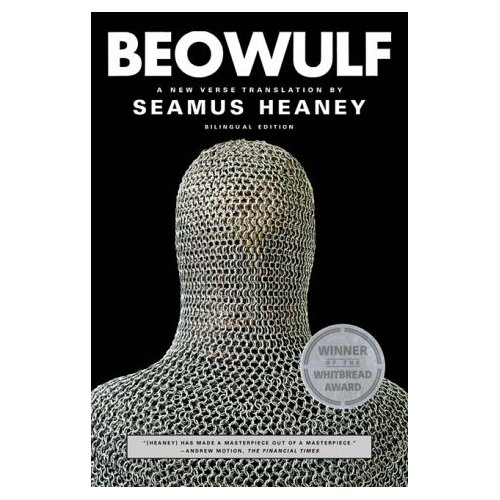
Seamus Heaney's Beowulf
I first came upon Seamus Heaney's, Beowulf, about five years ago. My son was required to read it for a high school English class, and I was immediately both enthralled and skeptical over the idea of a new publication. By the time I'd read two pages.......... I was captivated. Heaney had accomplished the impossible; he'd won me over to modern text.
Educationally, Heaney's translation is irreplaceable. Gone is the fear of conquering Old-English and feeling so completely consumed by the task of understanding that you miss the enjoyment. His version has gifted contemporary readers with a fresh rendering of one of the most beautifully written poems in history, every thread aligning perfectly with the next, and every word faithful to its predecessors.
Contemporary language aside, Heaney's words are reminiscent of an ancient time and place; they echo the past, and transport the reader to another world........... a world that echoes the archaic voices of long dead minstrels, who from one generation to the next, kept the tale alive with nothing more than their voices.
Recently, the tale of Beowulf has seen massive re-emergence in the media; theatrical presentations, films, graphic novels, toys, video games, and websites; all of these have inundated the market place, but none have stayed true to the tale, and none have been presented with either the beauty or haunting allure of the original. Heaney's Beowulf is the one exception to this epidemic of poorly rendered imposters............. it is in its own right, a classic.

